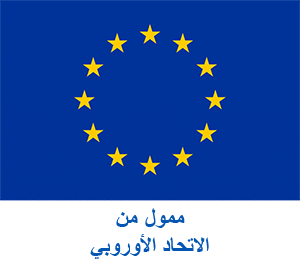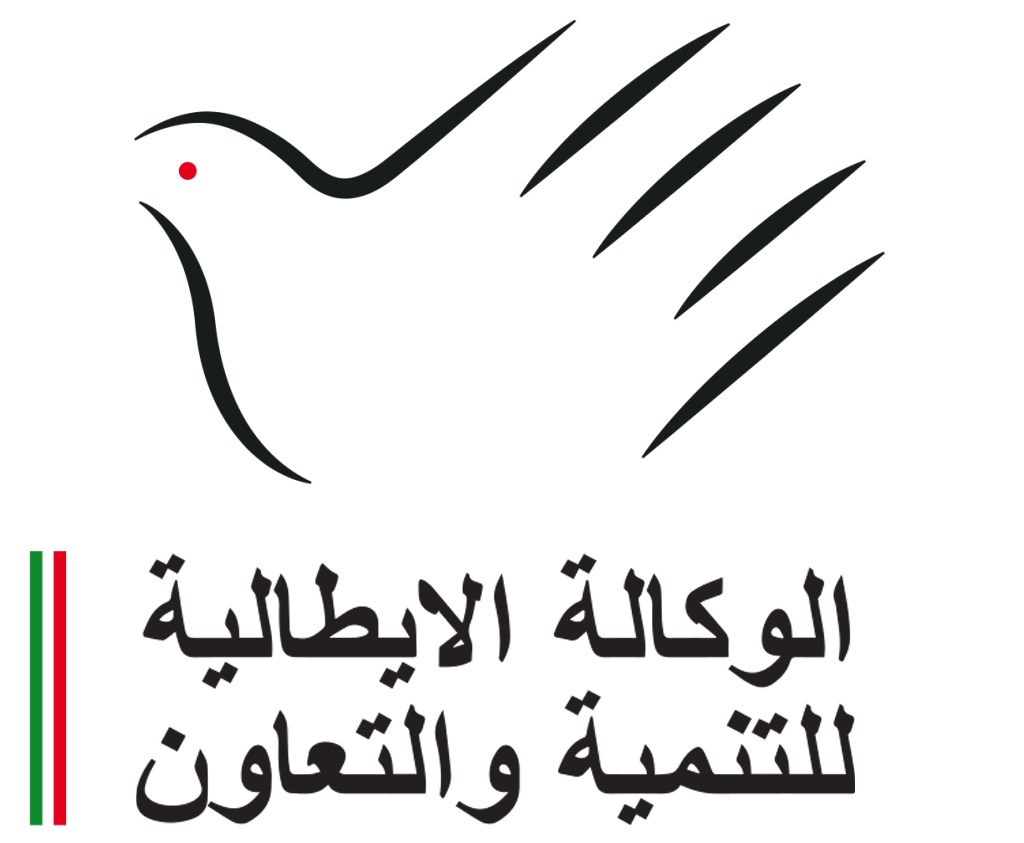Giza, Egypt — 13th October 2025.
Under the framework of the EU-ZIRA3A Programme, funded by the European Union and implemented by the Italian Agency for Development Cooperation (AICS Cairo) in partnership with the Ministry of Agriculture and Land Reclamation (MALR), the consortium AESA Agriconsulting Europe and CIHEAM Bari organized an Inception Workshop at the Regional Centre for Food and Feed, Agricultural Research Centre (ARC) in Giza.
The event marked the conclusion of the inception phase of an action titled “Enhancing Extension Services for Crop and Animal Production Towards Tackling the Impacts of Climate Change, Efficient and Sustainable Management of Natural Resources, and Agrifood-Ecosystems in Sohag, Beni Suef, and Assiut,” and showed the transition to the full implementation of activities
The workshop brought together representatives from AICS Cairo, MALR, Climate Vision Consulting (CVC), and the Animal Reproduction Research Institute (ARRI), as well as Directors of Agriculture and Veterinary Services from the three targeted governorates.
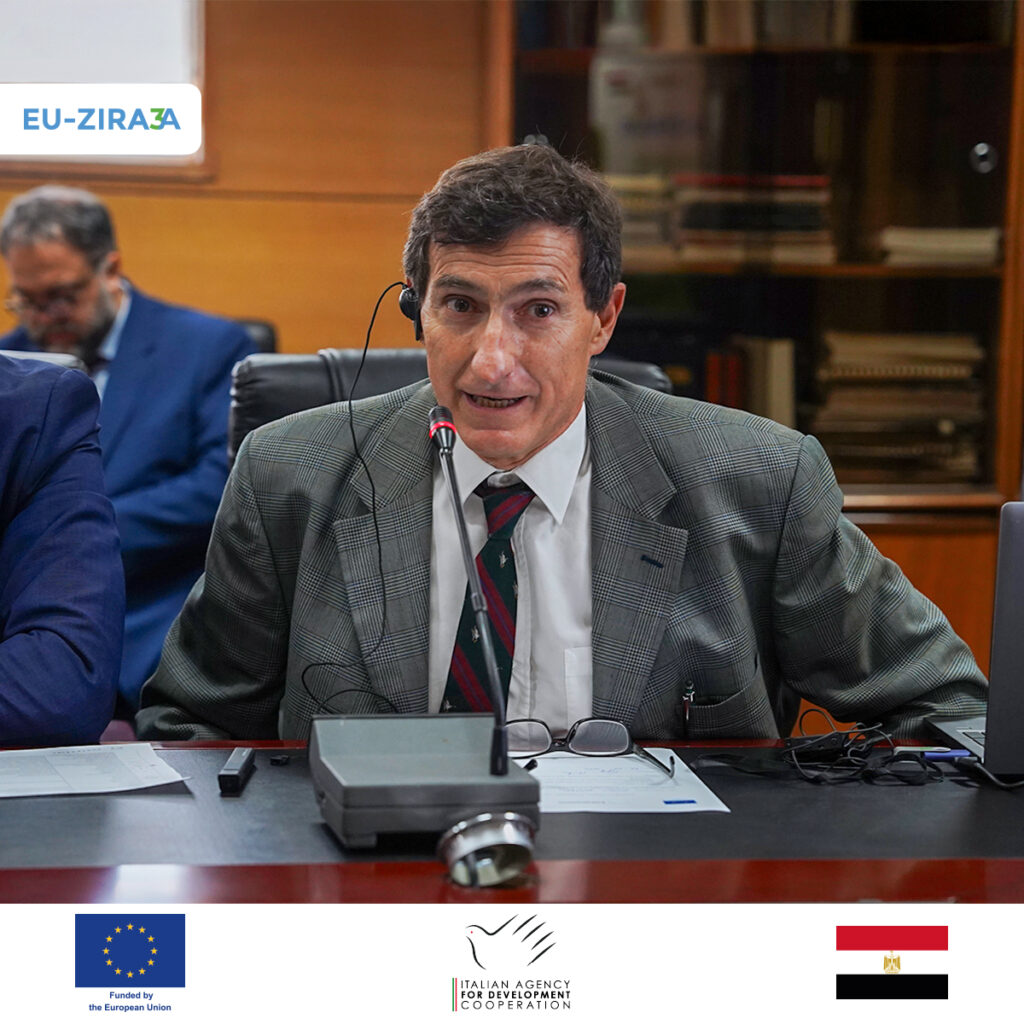
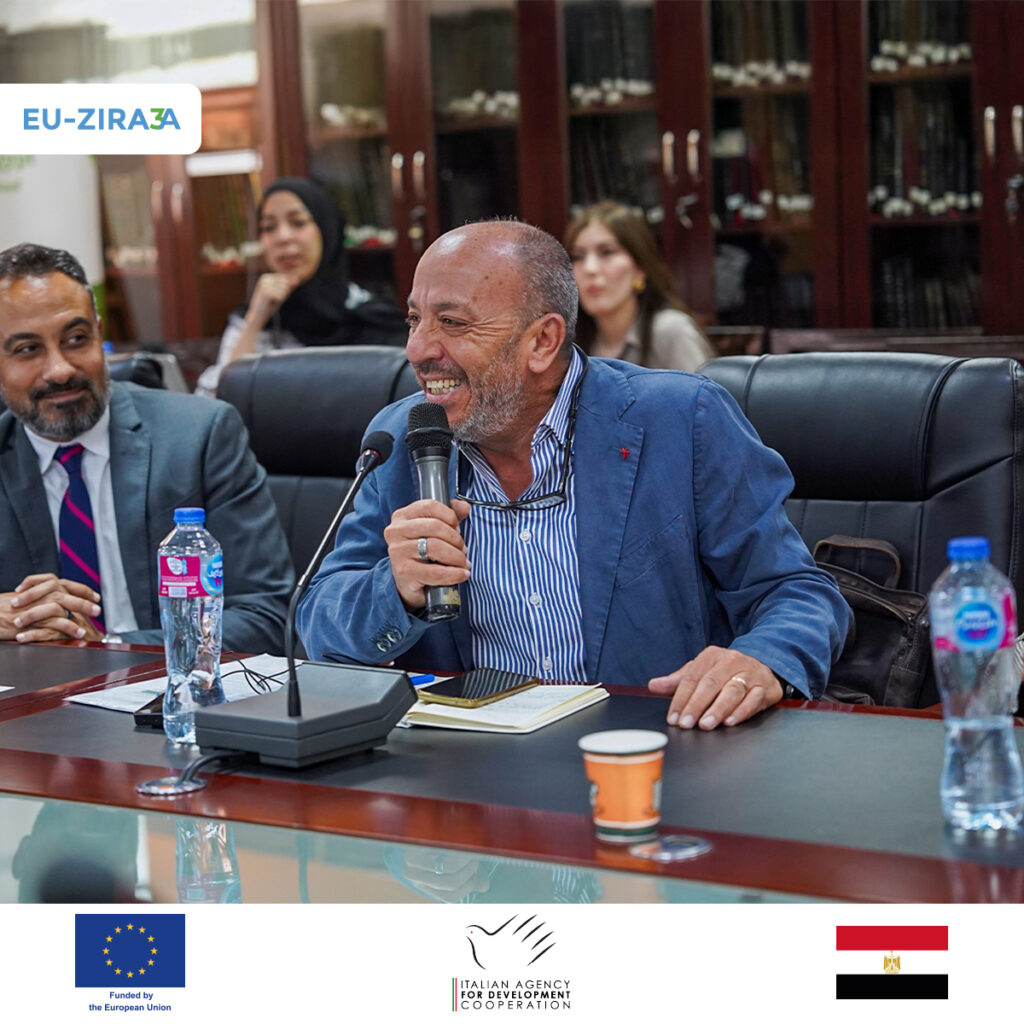
Collaborative Approach and Technical Insights
Opening remarks emphasized the importance of coordination and partnership among all implementing entities to strengthen extension services and improve the quality of support provided to farmers.
For the agricultural component, activities were highlighted include updating of ten crop manuals, conducting training of trainers and farmer field schools, forming and registering 60 Water User Associations (WUAs), and establishing demonstration models for modern irrigation and forage crop cultivation.
Presentation on the Veterinary component focused on improving veterinary service delivery, training programmes, livestock health management, and collaboration with the Animal Reproduction Research Institute (ARRI).
The event fostered a collaborative environment where representatives of MALR and the three governorates exchanged experiences, challenges, and recommendations to strengthen coordination between central institutions and field-level extension units.
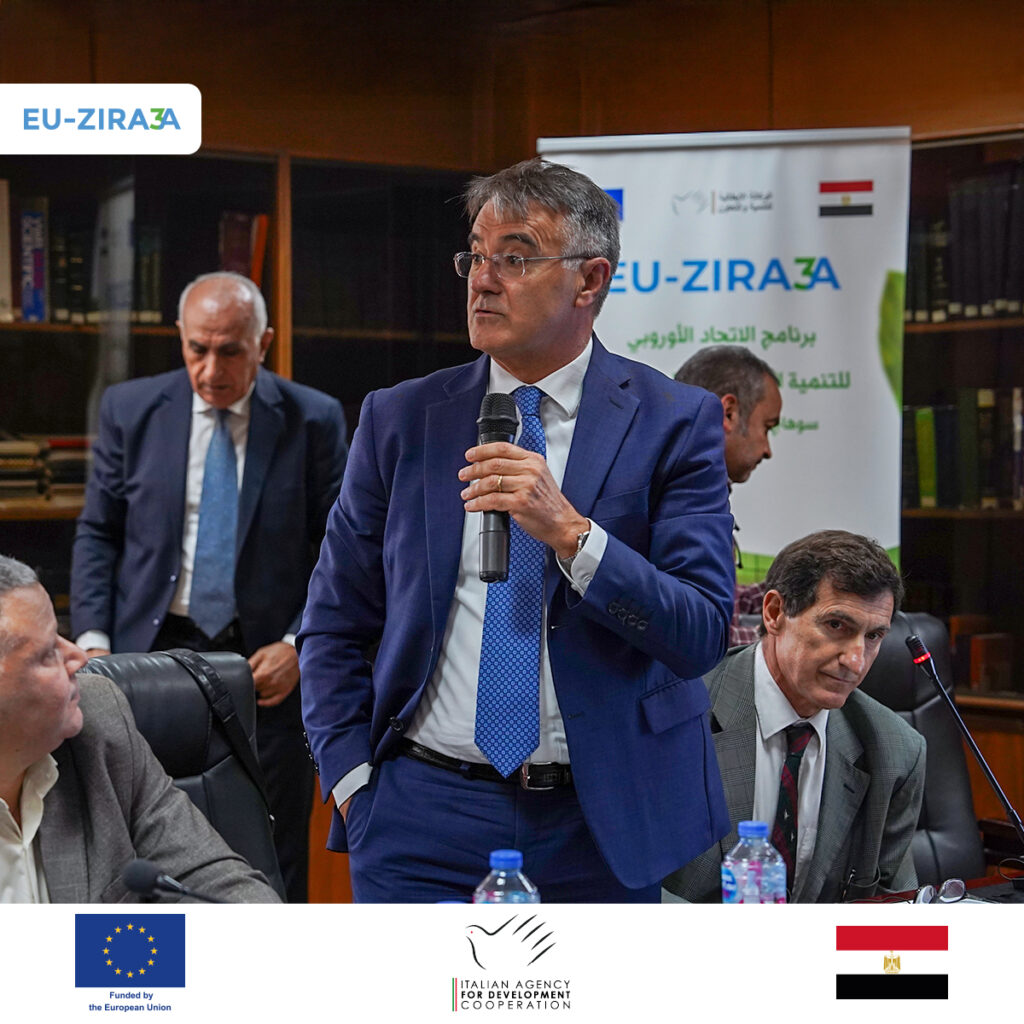
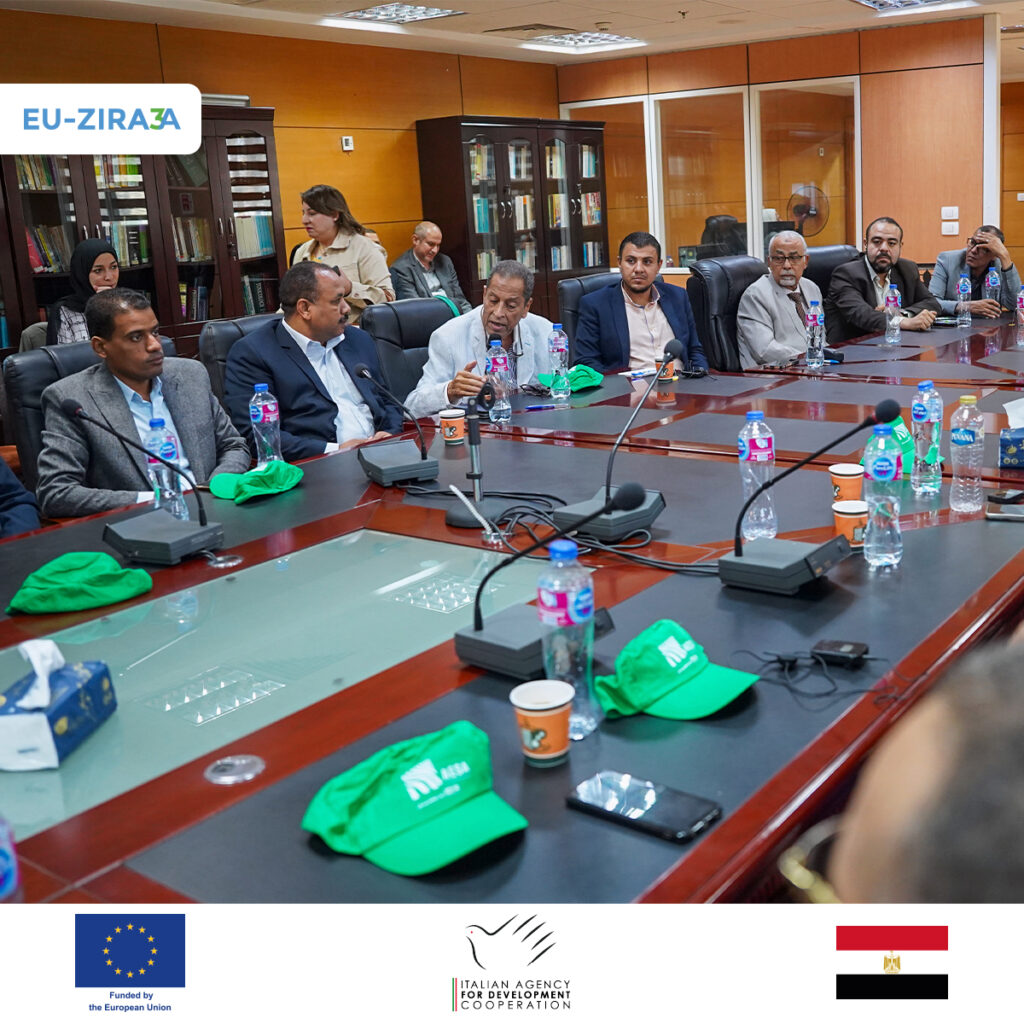
Sharing Results and Aligning Priorities
The workshop provided an opportunity to present the main findings of the inception phase (July–October 2025), which included assessments of agricultural and veterinary extension systems, baseline data collection, and consultations with local authorities in the three target governorates.
Presentations delivered by the consortium’s key experts for the agricultural and veterinary components components, summarized achievements, key observations, and the modifications introduced to the workplan to better respond to local priorities and institutional needs.
Discussions focused on ensuring that upcoming training programmes, field demonstrations, and capacity-building initiatives are adapted to the realities of farmers and extension officers in Sohag, Beni Suef, and Assiut.
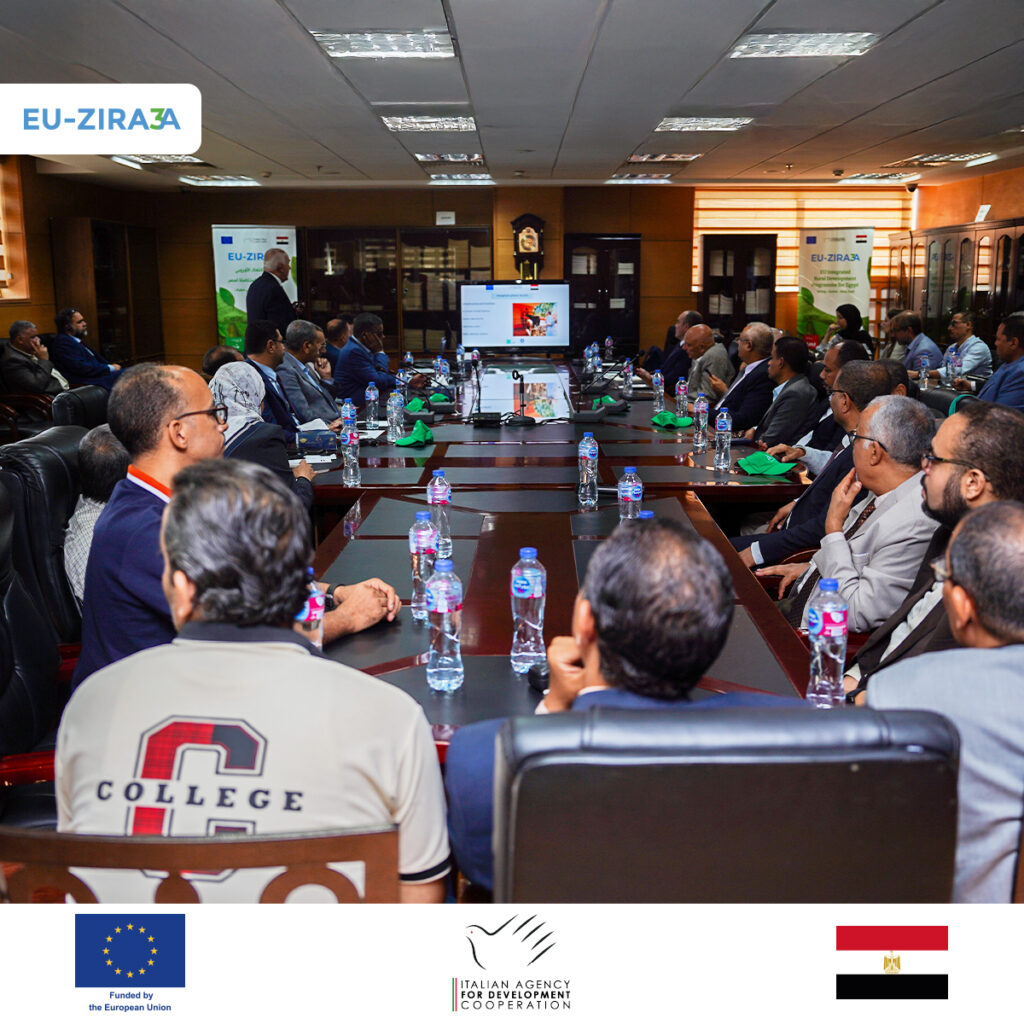
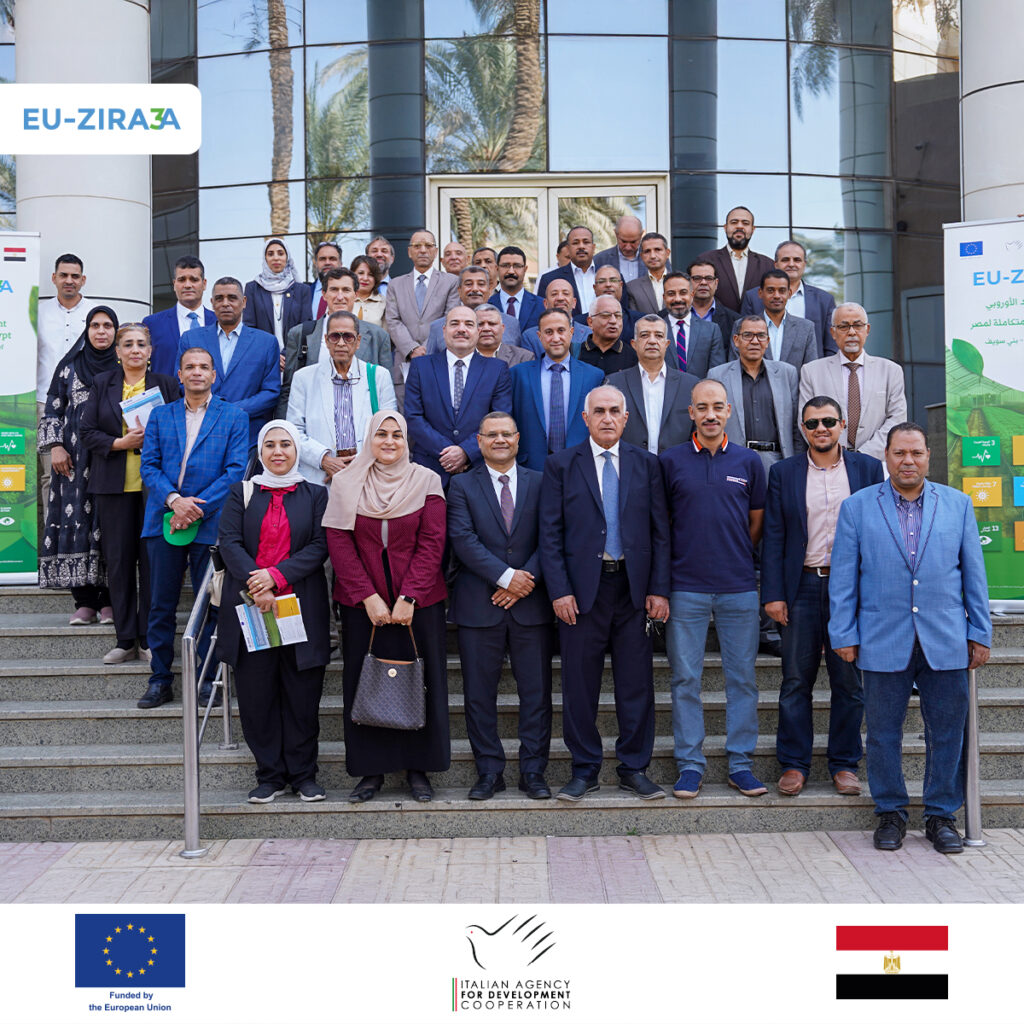
The way forward
By the end of the workshop, participants agreed on key priorities and next steps, reaffirming their shared commitment to advancing agricultural and veterinary services that respond to the needs of small farmers and rural communities in Upper Egypt.
The workshop concluded with a common understanding that effective extension services are central to improving productivity, tackling climate change, and promoting sustainable livelihoods, in line with Egypt’s Sustainable Agricultural Development Strategy (SADS) and Vision 2030.
